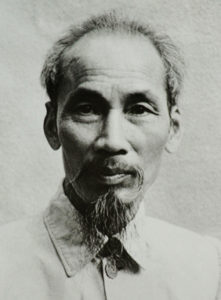
I often enjoy the conversational approach of the early Greek philosophers, though it is clear that the dialog is being manipulated. But in the open back and forth of unfettered discourse, one might well pick up a thing or two. Here is one such discussion (published without anyone’s permission):
Elstun W Lauesen — Here I a brief restatement of what I wrote in the middle of the night.
I am a Leftist. I am not a Conservative. I will, therefore confine my remarks to the Left.
The fuel of the Left is hope because the Left is devoted to change (reform).
This is a problem in 2018. To work toward reform, we have to believe that change is possible.
And just because Barack Obama appropriated those words for his political campaign does not make the presence of hope in our hearts any less imperative as an instrument of change.
I say this because my own self-examination reveals an awful truth. I have an affliction. It is cynicism.
There is no more damaging and cancer-like condition that can afflict a person devoted to reform than cynicism.
I have concluded the following about myself:
If I think I know too much about “the system” to believe that change is ever possible; if I feel too bitter by disappointment and dashed hope and the grossness of human nature to ever believe that a New World is possible; and if my advanced skills are devoted to sitting in the back of the room and picking the scabs of old wounds rather than taking a few more hits for the cause…
…then I am irrelevant to everything I believe in and to which I am devoted.
Cynicism is an intellectual and spiritual cancer.
See it. Call it out. Cut it out. Kill it.
Merwyn Ambrose Thanks for the death sentence brother 😉
But you view of the cynic is postprandial as is the more disturbing view of pedant and elite, the mob having dined on what those terms meant, and thereupon produced the target of your abuse.
Perhaps your problem is that you continue to hitch your hope to the wagons of the snake oil salespersons? It is one thing to have glorious visions, it is another to putter along trying to make small changes; I think both may be valuable as one inspires, and the other perhaps produces results.
Yes, it is difficult to keep digging away, but it is foolish to think that the project you are working on is going to miraculously materialize, lol, and you must toil away with the full knowledge that what you are doing will likely NOT succeed. But like Camus’s Sisyphus, dig we must…
But here you castigate those that know that these efforts have little chance of success but nevertheless toil on, apparently in favor of the flag wavers – and there is your real culprit… The smiling distributors of Blue Litmus Tests, the arbiters of the “illiberal left”, the exiters and the never enoughers 😉
Merwyn Ambrose You want to see where the cancer is, Elstun? Ask Harriet why the few sentences that would have protected Alaska workers from being denied medical services were excised from HB79 with the consent of the House Majority Caucus, and then come dance by the fire 🙂
Merwyn Ambrose Cynicism is the rejection of the accoutrements of power, and the recognition that Hobbes understood full well human nature (including Macpherson’s possessive Narcissism). The Maroons who have been selling their confused version of Locke’s tepid philosophy might be excused their ignorance (though perhaps not their hubris) but Locke, in his confusion, did draw a line in the sand. It comes down to Aristotle or Plato ever again – we either forge our own way, or search for magical tablets, and if the former, then we need to fully understand the beast we are dealing with, no???
Merwyn Ambrose Man of Constant Sorrow – Soggy Bottom Boys – O…
Allen Blume MA, this is assuredly some of your best and most forthright writing! Well done, sir!
Merwyn Ambrose Thank you, AB. “One can’t appreciate philosophy until one understands that one IS the relish…” Now THAT was good
Merwyn Ambrose I appreciate the criticism of Coyne and others that the arguments as to the “illiberal left” are simply artifacts of alt-right trolling, lol, and I have often pointed out how the likes of Jonah Goldberg miss the boat, but you will note, Allen, as you peruse the thread, that there are flecks of foam on the mouths of Elstun’s intended audience 😉
“Progressives” demand forthright candidates willing to charge into the breach, but faced with persons of honesty and integrity, they regularly turn on them for lack of ideological purity.
As an educational progressive I went so far as to stand for election, lol. Check out the old web site: Let’s get it on! | Grober for School Board. I don’t recall any army of progressives flocking to me banner 🙂 In fact, just the OPPOSITE! Why is that, I wonder. Yes, I know, I am an alt-right troll….
Elstun W Lauesen Merwyn Ambrose my view of things has gotten simpler and more mystical. In math we have the Fibonacci seq in which every number after the first two is the sum of the two preceding ones. Now the natural path of progress might adhere to this spiraling matrix, building, as it were, upon preceding values. But we know that it’s more like Hegel and less like Fibonacci, n, n+1, n-0.5, n+.75…
In the net of human experience we continue to limp along, sometimes dramatically like n+2.5 (as with electrification) and step back dramatically as we may see if Trumpism seizes arts and science (a National Science Foundation research grant on the weight of the human soul, perhaps, by NSF Head Franklin Graham, DD)
But my belief is that history in the age of the Jupiter Brain (look it up) becomes a series of fractal instances building a crystalline Stairway to Heaven (cue Led Zepplin)
Merwyn Ambrose Bradbury’s flaw, Elstun, was his failure to understand that scale is meaningless if the answer is 42…
Your comments indeed smack of Hegelian presupposition, and I worry that so many erstwhile progressive friends hide a belief in human “destiny”, lol. One of the most curious experiences I have had of late was reading Jonah Goldberg’s incredibly “progressive” introduction to “Suicide of the West”, in which he refutes the typical conservative litany on human “evolution”.
Not to push the physics analogy too far (as that is where so many ‘wu li dancers’ have gone so wrong), but light, as we know it, it based on what is arguably the imperceptible photon. It is the volume of these particles that we celebrate, and at core, the birth of these particles is on the subatomic level… hence, my argument that while one should not ignore gas giants (like Graham, pere et fils) the attempt to escape the “night that covers me” must address the minute, the granular, the local where those elements meet the organisms of tomorrow’s challenges. And that translates, dear friend to School Boards.
Rant of wrack and ruin, and hurl your epithets, but remember, the child is the father to the man.
Merwyn Ambrose He has a great riposte, Allen, but I honestly think I have 2 out of three falls here, rofl…..
The truth, gentlemen, is that this discussion should have its own thread, especially now that Elstun has admitted he is veering to the Pythagorean, lol. Music of the spheres?
Gustav Holst- The Planets, Full Suite
Allen Blume Elstun, my first instinct was to applaud your anti-cynicism polemic but then came Mr. Ambrose’ most articulate response. While there is truth in not succumbing to bleak cynicism and despair, if we fail to recognize the crisis today and the harsh cruelties to come, then we are setting ourselves up for catastrophic failure, and then, as Mr. Dewar has noted, get ready for a second FUBAR45 term in 2020.
As is already apparent, our own Democratic Party have become Quisling facilitators of the corporatist (read Fascist) agenda, willing to sacrifice the “proles” to some oligarch’s bottom line; and willingly so by the the Schumers, Pelosis, Feinsteins, et al who have become the virtually official spokespersons for Wall Street. In the face of such sycophantic surrender there is little any of us “down here” can do to reverse their abdication.
I’ve remarked elsewhere that I’m not particuarly sanguine about the coming “Blue Wave” in November because of the nature of the candidates that have emerged – mostly well-off, many former military, Chamber of Commerce neoliberals – and the fact that of all of the primary candidates only a very small percentage appear to have any substantive legislative experience/knowledge.
For those who are part of the former group, their co-option by Establishment Iron Triangles is virtually assured, while those in the latter group will be rudderless/leaderless/clueless until such time as they’re adopted by one or another of the special interest caucuses, because assuredly there is no “Poor Peoples Caucus” in the US Congress!
And while our national leaders curry favor with the Masters of the Universe our state and local parties drift ever closer to authoritarian “suck up, kick down” electoral management. Their agendas are virtually indistinguishable from their corporatist sponsors and the ALEC agenda.
And then there’s the putative leader of the so-called “Free World.” Even our seemingly “best” leaders (Obama and Clinton) were manipulated tools of Dark Money authoritarians (the Koch brothers, Sheldon Adelson, the Mellon-Scaife robber barons) and where they may have had some political capital they could spend it was quickly consumed by the gaping maw of corporatism, phony capitalism, and rampant consumerism. When their coins were spent or devalued they had little choice but to bend over in accommodation to their political captors.
Each of us has struggled with affecting political change in the “polis'” interest, ably backstopped and supported by one another. We’ve taken our lumps, crawled off to knit ourselves back together, and returned to the fray – but increasingly there hasn’t been enough liniment, bandages, splints, or aspirin to make the hurts go away, and that has taken a severe toll, even among the strongest true-believers.
I see and recognize that you’re not offering Polly-Anna saccharin in your charge to all of us, but I fear you’re diminishing our ability to see the harsh realities that loom over us and that demand that we think differently – prudently – about the crisis at hand.
We’re seeing the bloody specter of Nazism already shambling across our political desert but our responses are tepid and inconsequential; and liberals that we are, we will sit in conference introducing ever more evidence of the horrors loosed and not push away from that conference table to take our outrage into the streets where it should be made manifest.
Do I sound cynical? I damned well hope so! If we do not make for a militant common cause to oppose this usurpation of our freedoms then we had best circle our wagons, hunker down, and hope we can ride out the coming years of oppression and hate. I don’t like this second alternative but it’s increasingly looking like it may be our only means of survival!







